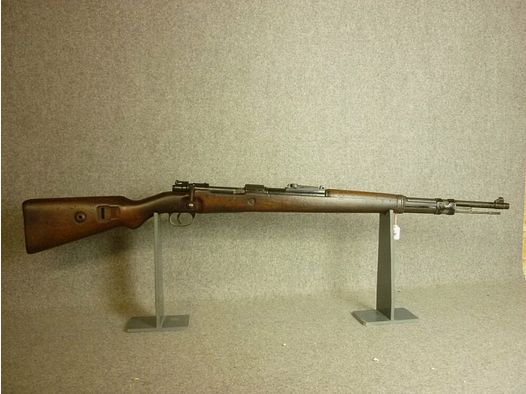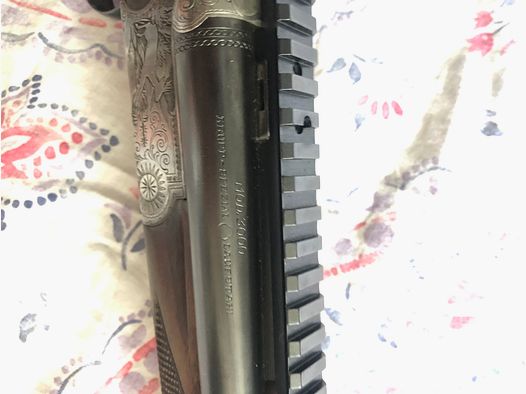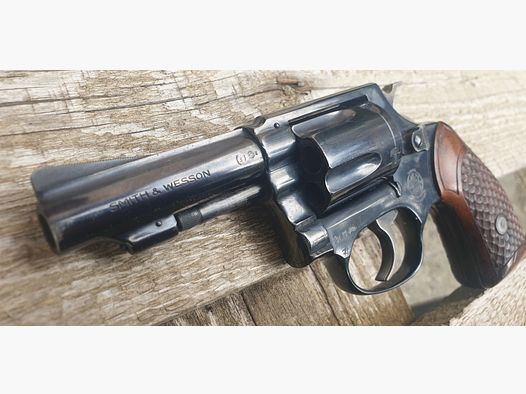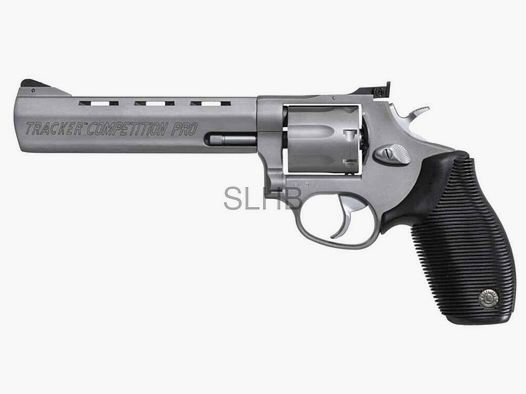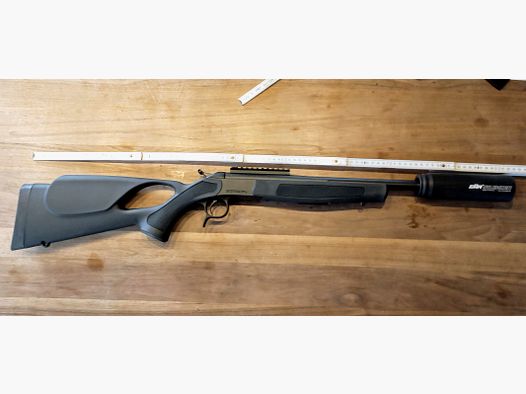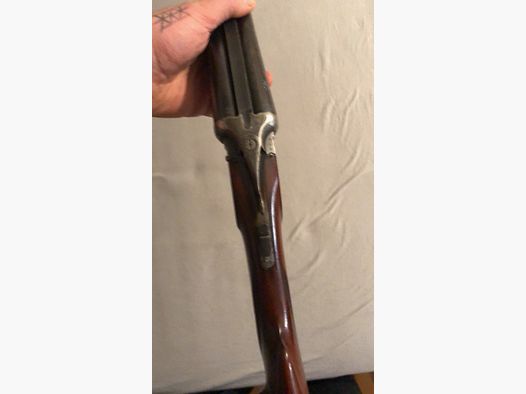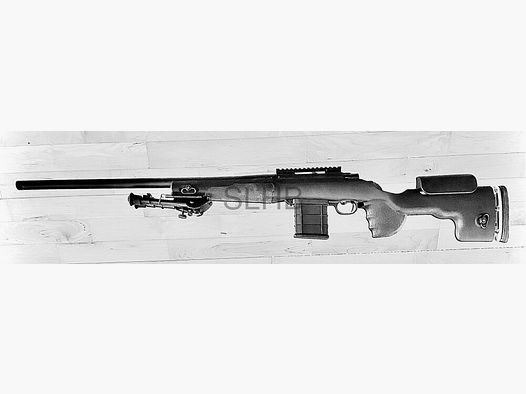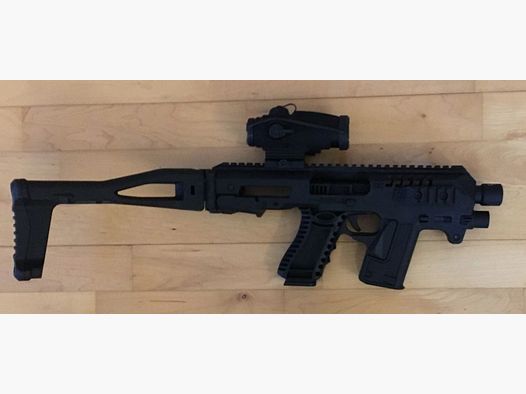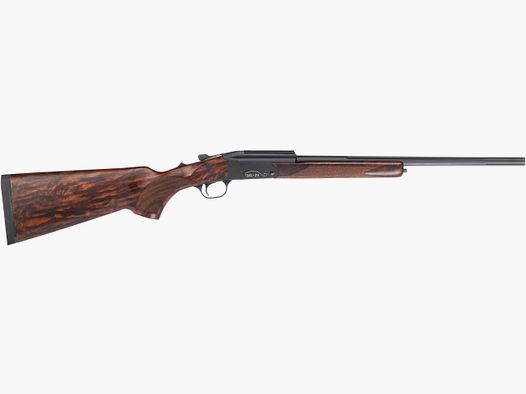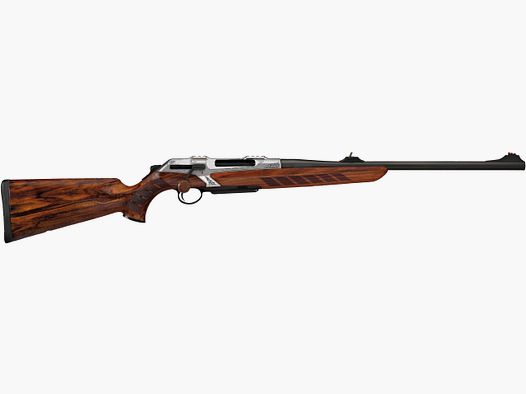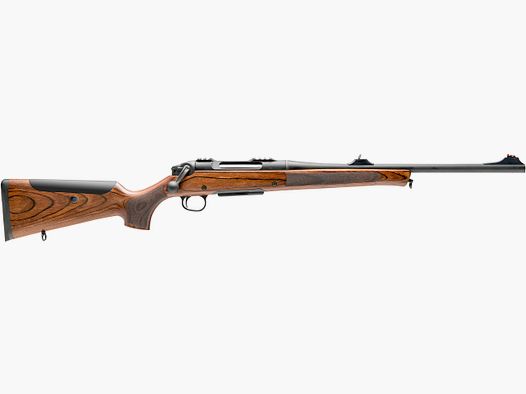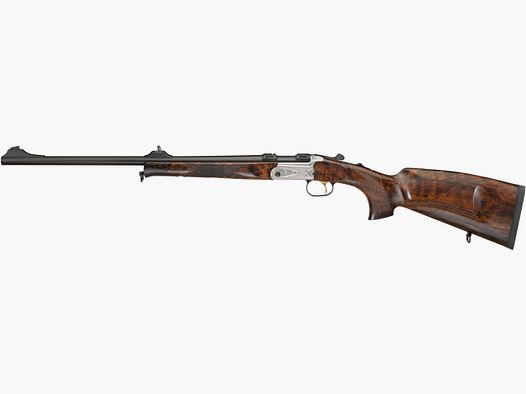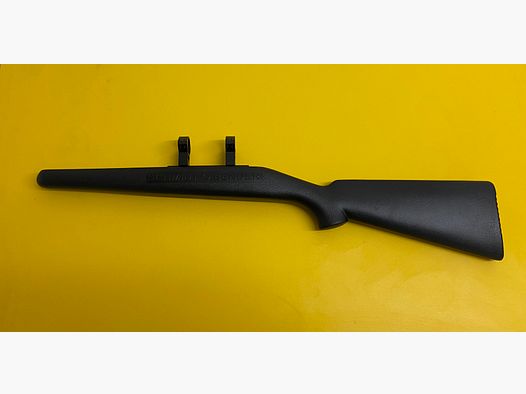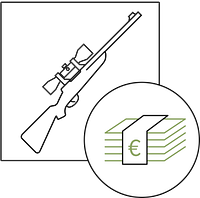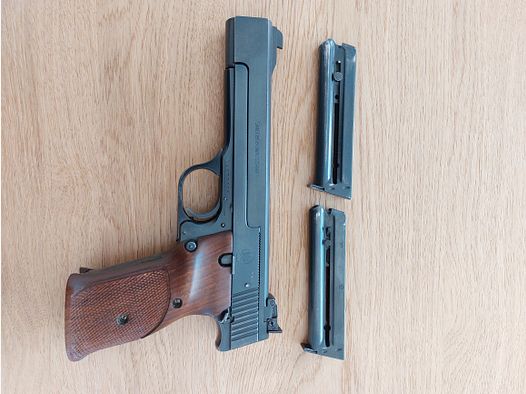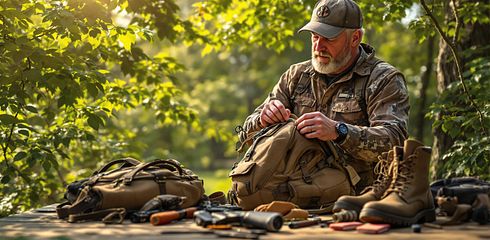To hunt in California, you need a valid hunting license. The process is clearly regulated and includes the following steps:
- Hunting education: Complete a mandatory hunting course (Hunter Education Certificate), which is offered online and in-person. Cost: approximately $29.95.
- Documents: You will need a valid ID (e.g., passport) and proof of education.
- Application: Apply for the license online at the California Department of Fish and Wildlife (CDFW) website or in person at a CDFW office.
- Costs: For non-residents, an annual license costs about $219.81, while for residents it is approximately $62.90. Additional fees may apply depending on the type of game.
- Validity: Licenses are valid from July 1 to June 30 of the following year.
Also, be aware of the regulations regarding the importation of hunting equipment into the USA, such as the ATF approval (Form 6 NIA). More details can be found on the CDFW website.
How to legally buy a firearm in the USA as a foreigner
Requirements before applying
Before you apply for a hunting license in California, there are some basic conditions you must meet. These apply to both residents and international visitors and are legally mandated. Here you will find all the important information regarding age and residency requirements as well as the mandatory hunting education proof.
Age and residency requirements
Minimum age: In California, there is no set minimum age for obtaining a hunting license, provided you have a valid proof of education. However, there are specific age limits for certain types of hunting. For example, you must be at least 12 years old to purchase deer tags (the relevant date is July 1 of the year in which you purchase the tag).
Residency status: It is not necessary to live in California to apply for a hunting license. Both residents and non-residents can obtain a license. You are considered a resident if you have lived in California for at least six months. Active military personnel stationed in California are also considered residents. To apply for a Resident Hunting License, you must prove your residency with documents such as a driver's license or vehicle registration.
Hunting education proof
In addition to the age and residency requirements, a valid proof of education is required. The so-called Hunter Education Certificate is mandatory for all first-time hunters in California. If you have never held a hunting license in another U.S. state or Canadian province – or if it has been more than two years since you last held one – you must complete a hunting education course.
California accepts hunting education certificates from other states and provinces as long as they meet the official IHEA-USA standards. However, a German hunting license alone is not sufficient; you need an education that meets American requirements.
How to obtain the certificate: The education process consists of two parts: an online course (cost: $29.95) and a subsequent in-person class. The online course covers topics such as firearm safety, hunting ethics, wildlife management, and hunting laws. After completing the course, you will receive an Online Course Completion Voucher that you must print out.
In the next step, you will participate in a practical in-person training that further develops your skills. Registration for this can be done through https://www.register-ed.com/programs/california/161.
This training is not only legally required but also extremely beneficial. It has been shown to reduce the risk of accidents, promote responsible and legal hunting, support wildlife protection, and improve the skills and responsibility of hunters.
Step-by-step guide to applying
Make sure you have all the required documents ready to ensure a smooth application process.
Required documents
To apply for a hunting license, several important documents are required. These include a valid ID and your Hunter Education Certificate (proof of hunting education). It is important that all documents are complete and up to date.
- Standard documents: German citizens need a valid passport or ID card. Without the Hunter Education Certificate, the license cannot be applied for.
- For California residents: To apply for a Resident Hunting License, you must prove your residency, e.g., with a California driver's license or vehicle registration. Active military personnel are automatically considered residents.
- Special provisions for veterans: Disabled veterans with a disability of at least 50% can apply for a discounted license (Disabled Veteran Reduced Fee Hunting License). Additional proof of veteran status and disability is required for this.
Once all documents are ready, you can proceed with the actual application.
Where and how to submit the application
You have two options: apply online through the California Department of Fish and Wildlife (CDFW) website or in person at a CDFW office. Both options lead to the immediate issuance of the license.
- Online procedure: Register on the CDFW website and create a customer account. You will receive a Get Outdoors Identification (GO ID) number, which you will need for future transactions with the CDFW.
- In-person application: Alternatively, you can purchase your license directly at a CDFW office or from an authorized license agent.
Costs and payment methods
The fees for a hunting license depend on your status and can vary significantly.
| License type | Price (USD) | Price (approx. EUR) |
|---|---|---|
| Resident Hunting License | $62.90 | €58 |
| Non-Resident Hunting License | $219.81 | €203 |
| Junior Hunting License | $16.46 | €15 |
| Two-Day Nonresident Hunting License | $62.90 | €58 |
| Disabled Veteran Reduced Fee | $10.29 | €9.50 |
Additionally, fees may apply for certain types of game:
- Upland Game Bird Validation: $24.84 (€23)
- California Duck Validation: $39.96 (€37)
- Wild Pig Validation (Resident): $27.57 (€25)
- Wild Pig Validation (Non-Resident): $98.85 (€91)
- First Deer Tag (Resident): $41.30 (€38)
- First Deer Tag (Non-Resident): $368.20 (€340)
Payment methods: Online, you can pay with Visa or MasterCard. In CDFW offices and with agents, cash is also accepted.
Processing time and validity period
- Immediate issuance: Whether you apply online or in person, the license will be issued immediately after payment. Online, you can print it out directly.
- Validity period: Hunting licenses are valid from July 1 to June 30 of the following year. A license purchased in December 2024 will therefore expire on June 30, 2025.
- Lifetime license: California residents can also purchase a lifetime hunting license, which remains valid indefinitely.
Special provisions for international hunters
International hunters wishing to hunt in California must adhere to a variety of regulations – from importing their equipment to local hunting laws. Here you will learn how to correctly bring your hunting equipment into the USA and what rules apply locally.
Importing hunting equipment into the USA
The importation of firearms and ammunition into the USA is subject to strict controls governed by laws such as the Arms Export Control Act (AECA) and the International Traffic in Arms Regulations (ITAR).
ATF approval for temporary import:
To temporarily import firearms and ammunition into the USA, you, as a foreign hunter, need the ATF Form 5330.3D (Form 6 NIA). This approval is valid for up to 12 months and allows multiple entries and exits. To apply, you must submit a copy of your California hunting license. Upon entry, both the approved Form 6 (NIA) and the hunting license must be presented to the U.S. Customs and Border Protection (CBP) officers.
Which equipment is subject to regulations?
Most commercially available firearms and ammunition are listed on the Commerce Control List (CCL). Stricter controls apply to machine guns, silencers, and armor-piercing ammunition, which are listed on the U.S. Munitions List (USML). Accessories such as optics, lighting devices, and target markers are also subject to export controls.
Tips for safe transport:
Ensure that your documents are correct and clearly legible – even small errors can lead to your equipment being confiscated. Transport firearms unloaded in a sturdy, lockable case and keep ammunition separately in a secure container in checked luggage. Note that airlines limit the amount of ammunition to a maximum of 5 kg.
California hunting laws you should know
In addition to import regulations, specific hunting laws apply in California that must be strictly followed.
Hunting education for first-time hunters:
If you are hunting in California for the first time and cannot present a hunting license from another U.S. state or Canadian province from the last two years, you must complete a hunting education course. After an online course, a Follow-Up Class in person is required.
Tagging and reporting harvested game:
Certain game species such as deer, bears, and elk must be tagged after being harvested. All deer tag holders are required to submit a Harvest Report (Harvest Report) – even if no game was harvested.
Hunting on private land:
To hunt on private land, you need a California Entry Permit for Hunting, which is issued to you by the landowner. Both state hunting regulations and any additional rules set by the owner apply.
Closed seasons and bag limits:
California sets strict Bag Limits that limit the number of animals that can be harvested per species. Although there is no legal requirement, wearing blaze orange is strongly recommended for upland hunters.
Public hunting areas:
The California Department of Fish and Wildlife manages over 700 areas covering more than 400,000 acres. With the interactive CDFW Lands Viewer, you can find suitable hunting areas. Check the current regulations on the CDFW website before your trip, as hunting times and rules may change.
sbb-itb-1cfd233
Tips for a smooth application process
A well-prepared application is key to avoiding delays. With careful planning and the right information, nothing stands in the way of your hunting adventure in California. Here’s how to master the application process smoothly.
Preparation for your hunt
Errors can easily be avoided through thorough preparation. Print out your hunting license receipt and keep both the physical and digital versions safe.
Ensure that you have all necessary documents ready in time. Your Hunter Safety Card should be on hand when you submit your application. Also, double-check your personal information, especially hunting zones and hunt codes.
An important deadline to keep in mind is January 31. By this date, the Harvest Report must be submitted to avoid penalties. This applies to anyone who holds a permit for desert bighorn sheep, elk, deer, or antelope – even if no game was harvested.
The right equipment is also crucial. California's hunting areas often have specific requirements. On Gunfinder, you can find a wide selection of firearms, optics, and accessories suitable for conditions in California. The platform offers both new and used equipment and enables secure transactions between hunters.
If you are coming from abroad, pay special attention to the accuracy of your social security number. Incorrect or missing information can delay the application process. Discrepancies in alimony payments or taxes can also lead to the rejection of your application.
Useful contacts and information sources
In addition to good preparation, having the right points of contact is important.
The California Department of Fish and Wildlife (CDFW) is the central authority for all questions regarding hunting licenses and regulations. You can reach the CDFW by phone at 916-928-2537 or by email at LRB@wildlife.ca.gov.
The CDFW website is regularly updated and provides the latest information on hunting times and regulations. With the interactive CDFW Lands Viewer, you can select suitable hunting areas from over 700 managed areas covering more than 400,000 acres.
Another important point: Accurate information and timely submissions protect you from legal consequences. Violations of regulations can result in fines, imprisonment, or the revocation of your hunting license. If in doubt, it is worth contacting the CDFW directly – a quick inquiry can save you a lot of trouble.
It is also interesting to look at the development of hunting license numbers in California: In 1970, 765,000 licenses were issued, while in 2022 there were only about 260,000. These numbers show how important it is for new hunters to be well-informed about current regulations.
Summary
Obtaining a hunting license in California requires careful planning and preparation. The first step is the mandatory Hunter Education training. This is required for all individuals born after January 1, 1972, or for anyone under 18 years of age. The training can be completed flexibly online, in person, or in a combination of both.
The cost of the license is approximately €48.46 for residents and €153.46 for non-residents. The licenses are valid annually, from July 1 to June 30. In addition to the formal requirements, having the right equipment plays a central role.
The choice of suitable equipment can significantly influence hunting success. Studies show that success rates can increase by up to 20% with the right equipment. For example, GPS devices can increase efficiency by 30%, while laser rangefinders can improve shooting accuracy in elk hunting by 15%.
"The right hunting equipment transforms every move into a seamless experience, enhances your hunt, and increases your success rate by 20%." – National Wild Turkey Federation
For acquiring equipment, Gunfinder offers a comprehensive platform. Here, hunters can securely purchase new and used firearms, optics, ammunition, and accessories. With careful preparation and high-quality equipment, nothing stands in the way of a successful hunting adventure in California.
FAQs
What requirements do I need to meet as an international hunter to hunt in California?
To hunt in California as an international hunter, you need a valid hunting license. Additionally, you must either successfully complete a Hunter Education course or pass an equivalency exam. It is also mandatory to work with a licensed outfitter or guide.
These requirements ensure that you comply with local hunting laws and are safe while hunting. Allow sufficient time for preparation and the necessary applications, as some steps may take longer.
What documents do I need to safely import my hunting equipment into the USA?
Safely importing hunting equipment into the USA
To smoothly import your hunting equipment into the USA, you need an approval from the ATF (Bureau of Alcohol, Tobacco, Firearms and Explosives) as well as a special import permit for firearms and ammunition. Additionally, some important documents are required, which you should prepare carefully:
- Customs declaration
- Commercial invoice
- Packing list
- Import Security Filing (ISF)
- CBP Form 7501
Make sure that all documents are complete and correctly filled out. Errors or incomplete information can lead to delays during customs inspection. With thorough preparation, you can ensure that the import process goes smoothly.
What regulations apply if I want to hunt on private land in California?
Hunting on private land in California
In California, hunting on private land is allowed, but only with the explicit permission of the property owner. Without this permission, you are committing a crime, as entering private property without permission is legally prohibited.
Additionally, you must adhere to all applicable hunting laws and regulations. This includes compliance with closed seasons, using permitted hunting methods, and observing current firearm regulations. It is important that you always carry your hunting license and all required documents in case of a check.
Tip: Discuss all details with the property owner in advance to avoid misunderstandings. Respect both the privacy and the rules of the property.



